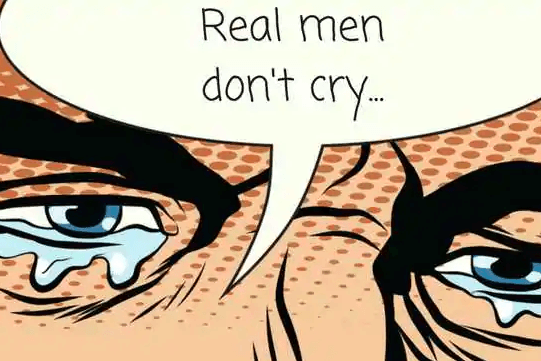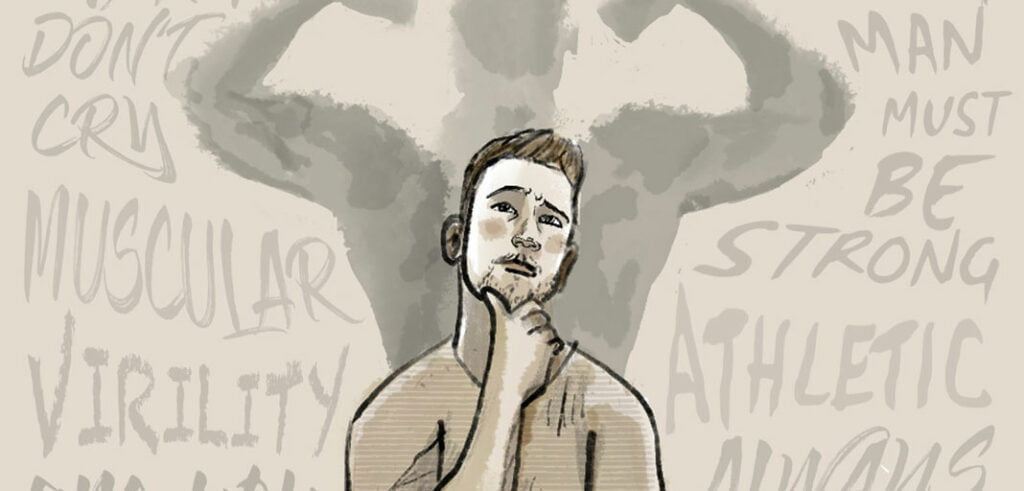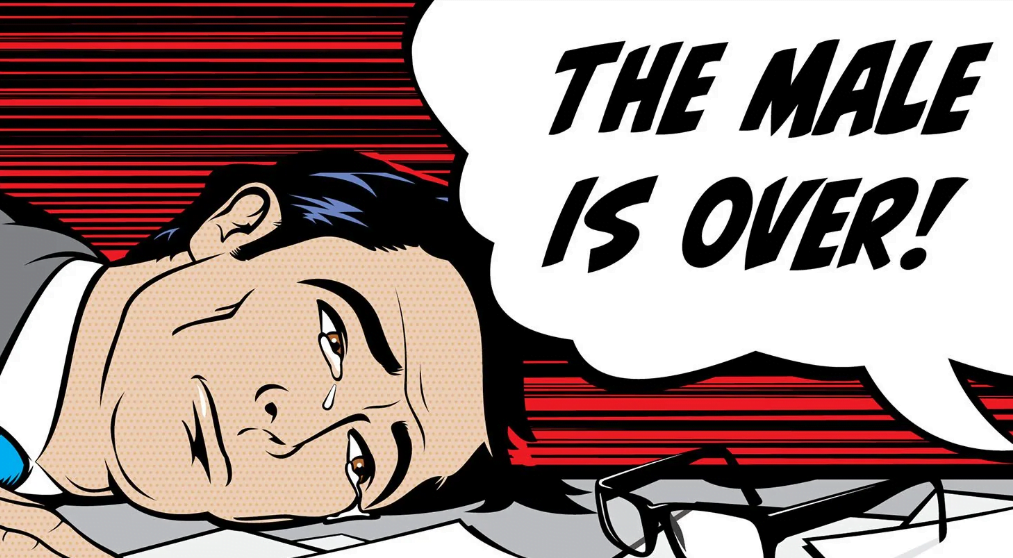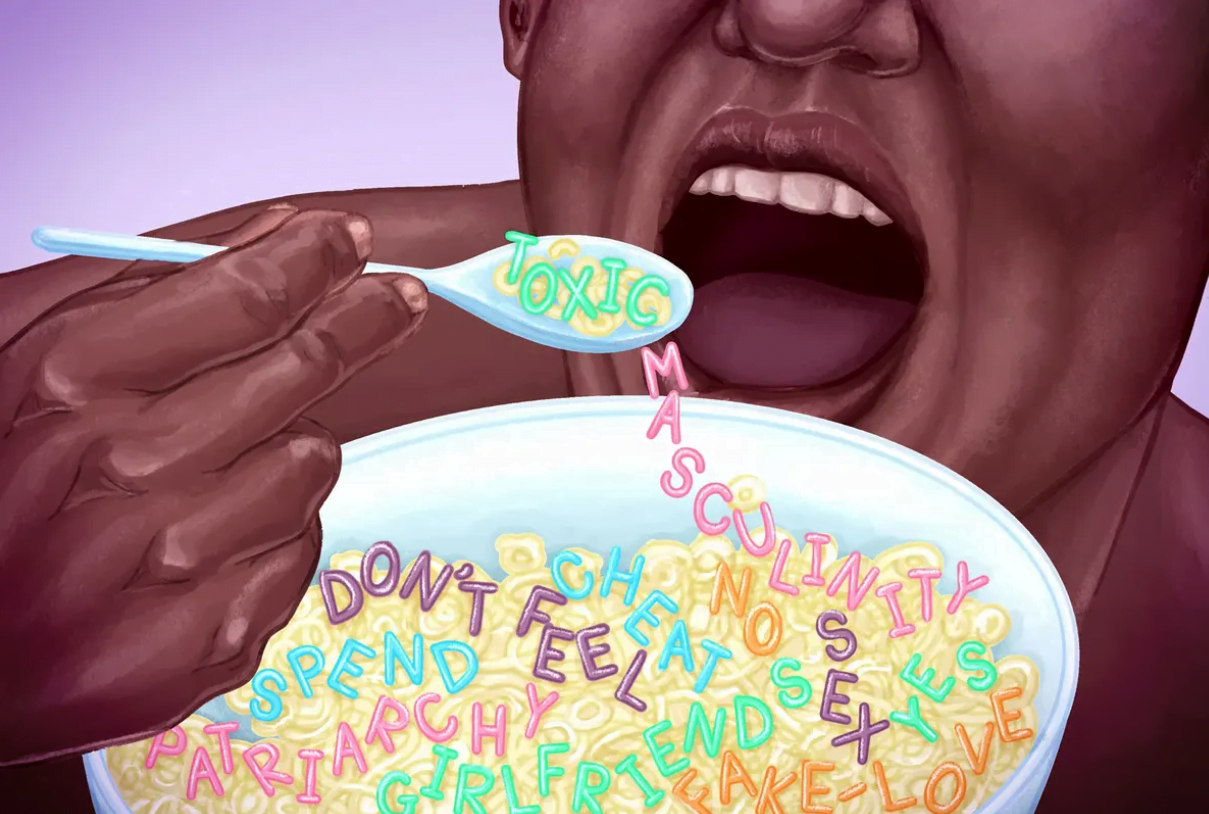Men under the age of 30 have a notably unfavourable view of feminism than women in the same age bracket, a recent study conducted by King’s College London’s Policy Institute and Global Institute for Women’s Leadership has found. The study has also discovered that a higher percentage of male participants under the age of 30 believe that it is harder to be a man in today’s day and age as compared to their older counterparts.
The research also explored people’s perceptions of online phenomena – such as the prevalence of the term ‘toxic masculinity‘ and the allure of misogynistic influencers such as Andrew Tate and Jordan Peterson.
Pronounced gender divide in young people’s attitude
When one considers the results of the study, the divide between the opinions of male and female participants of the youngest age group (16-29 years) is the most noticeable.

For example, overall, almost an equal share of men (42 per cent) and women (44 per cent) feel that feminism has done more good than harm. But in the 16-29 age group, only 36 per cent of men tend to believe that is the case, 10 percentage points less than their female counterparts (46 per cent). Men aged 60 years or older are shown to have a much more favourable view of feminism than younger men – with 44 per cent in the 60+ group leaning towards the opinion that feminism has been beneficial.
Men in the 16-29 age group were also the most likely to believe that in 20 years, it will be harder to be a man than a woman (30 per cent). On the other hand, nearly half the women (48 per cent) in this age group felt the opposite way – that it will still be tougher being a woman than a man in two decades.
“This is a new and unusual generational pattern – normally, it tends to be the case that younger generations are consistently more comfortable with emerging social norms, as they grew up with these as a natural part of their lives. For example, in equality debates of the past, such as whether men should take the jobs and women stay at home, it is older generations that are more divided by gender, while there is hardly any difference between men and women in younger generations,” said Professor Bobby Duffy, Director of the Policy Institute at King’s College London (KCL).
Overall, 37 per cent of all male participants agreed with the statement that women were worse off in terms of life outcomes such as work, safety, health, money, etc than men in contemporary times. Men aged 16-29 years were the least likely to think that this was the case (32 per cent). On the other hand, women in the same age bracket were the most likely (63 per cent) to think that women’s life outcomes are worse off, out of all age and gender groupings.
Several other studies in the recent past have pointed out that Generation Z men and women are increasingly at odds with each other in their perceptions of feminism. Findings from a 2023 study by the Survey Centre on American Life indicated an 18 percentage point gap between Gen Z men (43 per cent) and Gen Z women (61 per cent) identifying themselves as feminists. In contrast to the younger generation, this gap was only 2 percentage points for millennials – 52 per cent men and 54 per cent women who said that they were comfortable with the feminist label.
Young men in various countries such as South Korea, Germany, the United States of America (USA) and the United Kingdom (UK) are shown to be inclining towards conservatism and right wing ideologies, while young women are becoming more liberal and progressive in their outlook.
Researchers have also found emerging ties between men’s rights activism and right-wing ideologies in the Indian context.
What is driving this divide?
One of the key reasons for this ideological shift in young men could be the rise of the manosphere – the overlapping collection of websites, forums, videos, podcasts and social media content that promulgates anti-feminist, misogynistic and hypermasculine views.
The manosphere operates on the assumption that misandry is inherent in feminism and that men will be the victims if female empowerment goes ‘too far.’ This is exemplified in the kind of content influencers Andrew Tate and Jordan Peterson create.
Tate, who is a self-proclaimed misogynist, has previously been banned from the social media platform X (formerly Twitter) for his dangerous and problematic views on women and feminism. Peterson is a Canadian psychologist and author who has sparked controversy numerous times due to his problematic views on masculinity, women and queerness.
A statistic that surfaced from the KCL study was that in the age group 16-29 years, one in five (21 per cent) men who had heard of Andrew Tate held a favourable view of him. One in three (30 per cent) men in the same age group agreed that he raises important points about real threats to male identity and gender roles. Men in this particular group were the most likely to hold these opinions across all age and gender groupings.

Young men are drawn to these spaces often because they feel that these platforms take their concerns seriously. They also have more exposure to social media as compared to men of previous generations. “The manosphere appeals to its audience because it speaks to the very real lives of young men – romantic rejection, alienation, economic failure, loneliness, and a dim vision of the future,” according to researchers Eva Bujalka and Ben Rich.
What do young people in India think?
FII spoke to a few Generation Z men to understand the implications of the KCL study findings in the Indian context. While the interviewees acknowledged the achievements of the feminist movement for the most part, they also said that some of their male friends and peers might hold a contrary opinion.

‘If the topic of feminism comes up in conversation with my male friends, there’s sometimes a few tongue-in-cheek remarks about the idea of feminism. My female friends are much more vocal about feminist issues and are not afraid to voice their opinions. I believe that it is necessary but I also think that it intimidates a lot of men my age and might affect the way they feel about it,’ revealed S*, a young professional from Chennai. In this, we see how men might be led to believe that increased female agency means male disenfranchisement.
‘Of late, men my age are trying to ride the wave of a common conception that the onset of feminism makes it more difficult to be a man in today’s world because now men and their actions are under increased scrutiny. I feel like that’s a cop out on their part to be less accountable,’ S further noted.
The interviewees also expressed that their male peers tend to think that it is easier to be a woman in the online economy in current times.
‘The common belief is that if you’re a girl it is easier to get more followers – you just have to show your face,’ remarked T*, a postgraduate student from Delhi. ‘But it is men themselves who make up a large chunk of the audience on these women’s pages, seeking female interaction,’ he added.
Additionally, T described how his male peers sometimes feel that women have an undue advantage due to the emergence of feminism. And consequently, women always end up playing the victim, no matter the situation. This in turn leads to these men feeling resentful, possibly steering them away from the feminist cause.
‘A very narrow-minded view that many men have is that women play the “feminism card” to get out of any situation. I try to rationalise with them by explaining that feminism is more than that, but sometimes I have to keep my opinions to myself to maintain peace,’ he told us.
Other factors that might be responsible for widening the ideological chasm between Gen Z men and women are the loss of traditional masculinity, a lack of credible male feminist role models, and homophobia, the interviewees opined.
Knee-jerk reactions to the ascent of the manosphere will not be the best foot forward in this situation, because toxic masculinity draws in men who feel disempowered at varying degrees in their own lives. The actual problem runs deeper than just the online presence of influencers like Tate and Peterson.
“This (study) points to a real risk of fractious division among this coming generation of young – and the need to listen carefully to both. That includes much more work on understanding the challenges facing young men today, or we risk that void being filled by celebrities and influencers, and this nascent divide being exacerbated,” Professor Duffy observed.
Delving deeper into the appeal of the manosphere and understanding why so many young men are feeling threatened in their masculinity is therefore of utmost importance. Conversations with a focus on delinking masculinity from narrow conceptions of power and success, dominance and servility, need to be fostered both within and outside of the social media ecosystem.
*Names have been abbreviated for anonymity
About the author(s)
Divyani is a media and research professional with a background in critical cultural theory. Her core interest areas are digital cultures, sexuality, and mental health. She loves annoying her cat and a good cup of coffee.






I am a feminist from China and a girl in middle school. Men of my age are showing such a trend. Almost half of them think that feminism has nothing to do with men and is not a matter they need to care about. A small number of people think that feminism is harmful and will hinder the normal rights of men, while the rest believe that women have been liberated and do not need to continue to carry out equal rights. They think that feminists are too sensitive and vulnerable. None of them will admit that they are feminists, not only because they are afraid of losing their rights or being affected by anti-feminist ideas on TikTok, but also because they are afraid of being isolated by the men around them. When I make speeches and topics about feminism, they always don’t care or laugh. No one wants to seriously understand what feminism is